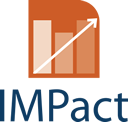Aim of the project & consortium
The European Commission identified personal and household services (PHS) as a strategic economic sector in 1993. It defines them as a “broad range of activities that contribute to well-being at home of families and individuals: child care, long term care for the elderly and for persons with disabilities, cleaning, remedial classes, home repairs, gardening, ICT support, etc.” Furthermore, the European Commission identified personal and household services as contributing to “increase competitiveness and provide important sources of growth and jobs, as well as addressing economic and social needs” (European Commission, 2012).
Indeed, despite an increasing demand linked to demographic and socio-economic challenges, the development of personal and household services faces numerous obstacles both on the demand (e.g. the high cost of those services or cultural barriers preventing the outsourcing of domestic work) and the supply side (e.g. the lack of a structured supply of services and of quality guarantee schemes and labour shortage). Thus, as traditional market rules are not enough to ensure the formal development of PHS, the sector is “either left to the undeclared employment market, or publicly funded, which is expensive” (European Commission, 1993).
Over the years, several European countries have adopted measures that support the formal provision of those services. Given the current economic and financial crisis, their cost is criticized and some of them have recently been questioned and modified despite their positive societal effects. The budgetary cost of PHS-supporting measures appears to be the largest obstacle to the continuation of those policies and the adoption of new measures. However, most of the time, neither the expenditure supporting PHS nor the positive earn-back effects of those measures are sufficiently known by public authorities. Their vision is limited to an assessment of the total cost, while account is not taken of the direct (decrease of allowances, new revenue from tax on income and social contribution, etc.) and indirect (new revenue from companies income tax, employment creation through support staff hiring, new consumption, etc.) earn-back effects and many positive social externalities (e.g. better social inclusion, increased work-life balance, etc.).
In its 2012 staff working document on personal and household services, the European Commission not only stressed the need for joint reflection on the challenges of implementing PHS policies, but also underlined the need for cost-benefit assessment. Indeed, many distinct potential PHS-supporting measures exist, and they can meet different public policy objectives. Most of the time they are not grouped together in a single and coherent framework, and they are often implemented separately year after year, which makes it even more difficult for the State to have a broad and comprehensive overview. This causes several difficulties when it comes to assessing the earn-back effects of supporting measures, which makes data collection more complicated, especially as the public authority investing in personal and household services and the authority receiving the benefits are usually different.
That is why the IMPact project was started with the objective of creating a common and comprehensive EU guide that would help Member States to design PHS measures and improve assessment and monitoring of its the macro-economic effects. The longer-term objective is to help them to shape the policies that best fit their needs and objectives. Launched in October 2014, the project led by the European Federation for Services to Individuals (EFSI, an EU-wide organisation) lasted 18 months and brought together the following partners:
- Censis (Italy)
- IDEA Consult (Belgium)
- Oxford Research (Sweden)
- Research Institute for Labour and Social Affairs (RILSA, Czech Republic)
- Panteia B.V. (The Netherlands)
- Pour la Solidarité (EU-based organisation)
- Unión de Profesionales y Trabajadores Autónomos (UPTA, Spain)





